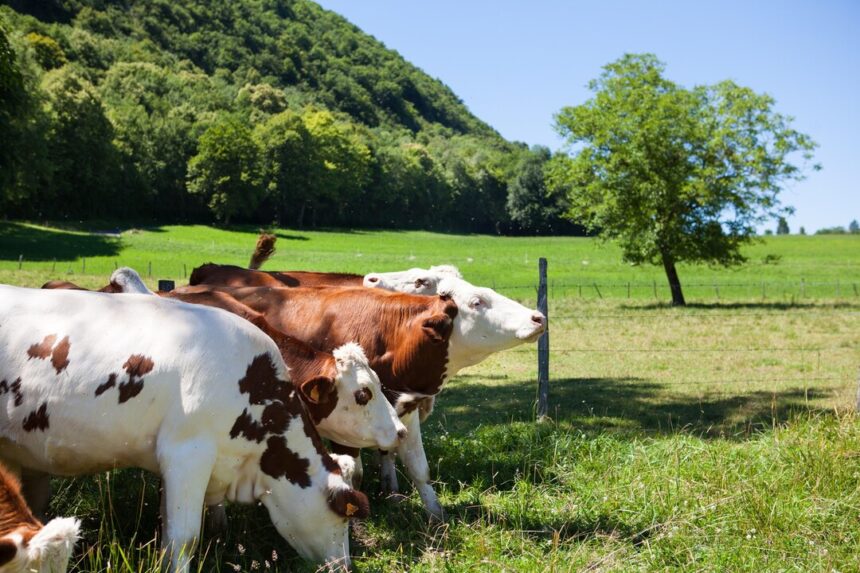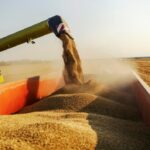Simmental cattle, renowned for their dual-purpose capabilities, remarkable adaptability, and striking appearance, have become a cornerstone of the beef industry worldwide, including South Africa. Originating from Switzerland, these versatile animals have captured the attention of cattle breeders with their excellent meat production traits and docile temperament. For those considering breeding and farming Simmental cattle in South Africa, understanding essential aspects of their management and husbandry is crucial. In this article, we’ll explore ten key insights to guide you on a successful journey with Simmental cattle in the South African context.
1. Origins and History:
Simmental cattle trace their origins back to the Simme Valley in Switzerland, where they were first documented in the 19th century. Bred primarily for their draft capabilities and milk production, Simmental cattle gained recognition for their excellent beef qualities and were subsequently exported to various countries, including South Africa.
2. Dual-Purpose Capabilities:
Simmental cattle are valued for their dual-purpose capabilities, excelling in both beef and dairy production. While traditionally used as draft animals and milk producers in Switzerland, modern Simmentals are primarily bred for beef production, prized for their superior carcass quality and growth rates.
3. Striking Appearance:
One of the most distinctive features of Simmental cattle is their striking appearance, characterized by a rich, golden-red to rust-colored coat with white markings on the face, belly, and legs. Their medium to large frames are well-muscled and sturdy, exuding power and strength.
4. Adaptability to South African Conditions:
Simmental cattle have demonstrated excellent adaptability to various climates and environmental conditions, making them well-suited to the diverse landscapes of South Africa. Whether in the lush pastures of the Eastern Cape or the arid regions of the Northern Cape, Simmentals thrive with proper care and management.
5. Meat Production Traits:
Simmental cattle are renowned for their exceptional meat production traits, characterized by high growth rates, efficient feed conversion, and superior carcass yield and quality. Their well-muscled bodies and excellent conformation make them desirable for both commercial and stud farming operations.
6. Milk Production:
While Simmental cattle are primarily bred for beef production in South Africa, they also exhibit good milk production capabilities. Simmental cows produce ample quantities of high-quality milk with favorable components, making them suitable for dairy crossbreeding programs or dual-purpose farming operations.
7. Docile Temperament:
Simmental cattle are known for their docile temperament and calm disposition, making them easy to handle and manage. Their gentle nature and cooperative behavior make them ideal for both experienced cattle handlers and novice farmers alike.
8. Nutrition and Feeding Requirements:
Providing a balanced diet is essential for optimizing the growth, reproduction, and overall health of Simmental cattle. Ensure access to high-quality pasture or forage, supplemented with a balanced ration formulated to meet their nutritional requirements at different stages of production.
9. Health and Disease Management:
Maintaining the health and well-being of Simmental cattle requires diligent disease prevention and management practices. Implement routine vaccinations, parasite control programs, and biosecurity measures to safeguard your herd against common diseases and minimize the risk of outbreaks.
10. Breeding Considerations:
When breeding Simmental cattle, select breeding stock with desirable traits such as growth rate, muscling, maternal instincts, and structural soundness. Practice proper mating techniques, maintain detailed breeding records, and strive for continuous improvement in your herd through selective breeding and genetic selection.
Breeding and farming Simmental cattle in South Africa present exciting opportunities for livestock producers to capitalize on the breed’s exceptional qualities and versatility. By understanding their origins, striking appearance, adaptability, and management requirements, farmers can embark on a rewarding journey with Simmental cattle, contributing to the success and sustainability of the beef industry in South Africa. Whether for beef production, dairy crossbreeding, or simply as delightful additions to the farm, Simmental cattle are sure to make a valuable contribution to agricultural endeavors across the country.
Join 'Farmers Mag' WhatsApp Channel
Get the latest Farming news and tips delivered straight to your WhatsApp
CLICK HERE TO JOIN






